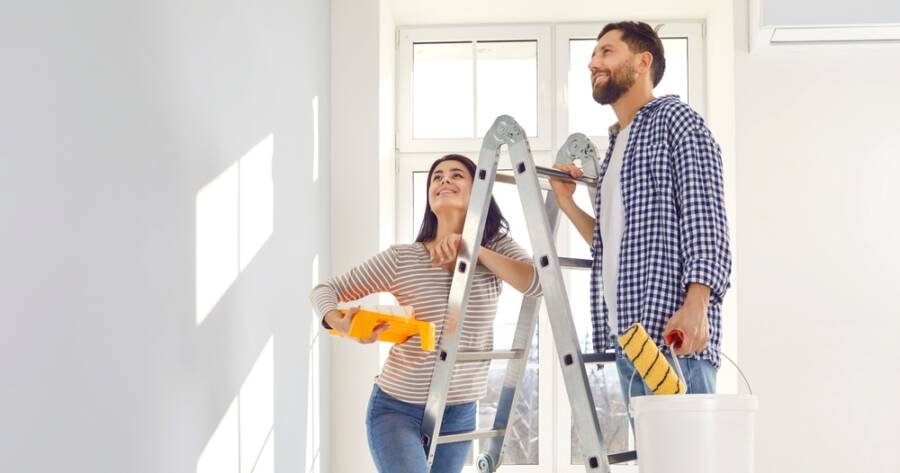Home improvement projects can be daunting for individuals with poor credit, but numerous tailored financing solutions can offer help. Ranging from government-supported programs to private lender options and alternative paths, financial solutions provide opportunities to secure funding without added financial strain. Recognizing various tools and considerations is key to making informed decisions for enhancing living spaces effectively.
Government-Supported Programs
The federal government offers various programs through the Department of Housing and Urban Development (HUD) that can benefit those with poor credit. These programs, such as the Title 1 property improvement loan program, are ideal for property remodels and repairs without heavily relying on the applicant’s credit score.
Similarly, the 203(k) rehabilitation mortgage insurance program allows individuals to integrate up to $35,000 for home repairs into their mortgage. Seniors might find the Home Equity Conversion Mortgage (HECM) particularly advantageous, as it lets them draw from their home equity to cover repair and maintenance expenses. Additionally, specific state and local programs could also provide financial help within various states.
Loan Options for Individuals with Poor Credit
Numerous private lenders focus on borrowers with poor credit history. Upgrade, for instance, is an enticing option, particularly for those aiming to improve their credit alongside acquiring a loan. It offers flexible terms and incorporates a co-signer for better rates.
Upstart, on the other hand, emphasizes financial behaviors beyond credit scores, thus accommodating borrowers with thin credit histories. Other lenders like Universal Credit, Avant, and LendingPoint provide distinct benefits such as quick funding, flexible payment plans, and acceptance of multiple income sources.
Alternative Financing Paths
Besides traditional loans, home equity loans and HELOCs are viable alternatives. These options use the property’s value as collateral and feature flexible borrowing suited for continuous improvement projects. Furthermore, FHA 203(k) renovation loans are designed for lower-income individuals, allowing them to integrate renovation costs into their mortgage.
For those hesitant about high-interest rates, no-credit-check loans are available. However, these loans often result in debt cycles due to their excessive fees and rates, highlighting the importance of credit improvement strategies.
Tools to Improve Your Credit
Improving one’s credit score can lead to better loan terms, even among lenders prioritizing credit-building tools. Paying bills on time, reducing credit utilization, and reviewing credit reports are critical steps toward credit enhancement.
Hearth offers a unique blend of home improvement loans for those with poor credit, allowing borrowers to explore rates without negatively impacting their credit scores. Moreover, they provide secure application processes and partnerships with lenders willing to approve loans for individuals with poor credit. Their offering extends to convenient alternatives like 0% APR credit cards.
Considerations Before Choosing a Loan
When evaluating home improvement financing solutions, individuals should consider factors like the urgency of the project, the availability of home equity, monthly payment affordability, and total loan costs. Alternatives like home equity investments (HEIs) provide a lump sum in exchange for future home appreciation, which can be beneficial for those unable to handle high monthly payments due to poor credit.
HEIs do not require monthly payments, offering an attractive long-term solution regardless of varying credit scores. Individuals must diligently assess the terms, rates, and fees associated with each lending option to ensure they make the most informed financial decision.
Why You Should Learn More About Home Improvement Loans Today
Securing a home improvement loan, particularly with poor credit, demands a comprehensive understanding of available options, terms, and eligibility. From government-backed programs to private lenders focusing on credit-building opportunities, various solutions cater to diverse financial circumstances.
Exploring these options is crucial for securing cost-effective funding while enhancing or maintaining a property. Individuals should remain informed about continuously evolving financial products and services to make well-balanced decisions that align with their unique financial situations, paving the way for successful home improvements and financial wellness.
Sources
Best Home Improvement Loans for Bad Credit

